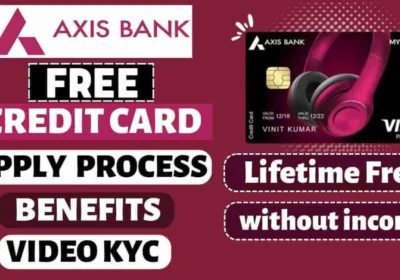Different Types of Government Backed Mortgage Loans
Government loans are available for various purposes including student debt, housing and to help a small business grow. These loans are backed by the federal government and typically have more flexible qualifications than conventional mortgages.
The most popular government backed loans are those offered by the FHA, VA and USDA programs. These types of mortgages give lenders an added layer of protection against borrower default and allow borrowers with lower credit scores to qualify for homeownership.
Benefits
Government-backed loans offer unique benefits for borrowers. Government-insured mortgages (like FHA, USDA, and VA) provide home buyers with less stringent loan requirements, making homeownership more attainable for those with lower incomes, bad credit ratings, or previous financial issues such as bankruptcies and liens. Borrowers who meet the requirements of government-backed mortgage programs, such as Contour Mortgage, may also enjoy lower interest rates than conventional loans.
Government backed loans also often provide more flexible loan terms than private loans, including longer repayment periods and lower or waived fees. This flexibility can help borrowers manage their finances more effectively, especially in tough times when private lenders become risk-averse and restrict their lending activities.
Another key benefit of government backed loans is that they typically come with lower down payments than conventional loans. This makes homeownership more accessible for many, particularly first-time homebuyers. Additionally, borrowers who meet the requirements of government-backed loan programs, such as FHA, USDA, or VA, may also secure a lower interest rate than those with conventional loans. This is because these types of government backed loans are guaranteed by the federal government, meaning there is less risk for lenders. Therefore, the guaranty reduces a lender’s overall borrowing costs, which is then passed on to the borrower.
Requirements
정부지원대출 have their own unique requirements that must be met. But for many home buyers and small businesses, they open the door to financing that isn’t available with conventional mortgages and other loan programs.
For example, the FHA and USDA programs allow borrowers to purchase a home with a much smaller down payment (and often no down payment at all). Additionally, these loan programs offer flexible qualification criteria for debt-to-income ratios, credit scores and other factors.
In addition, the FHA, USDA and VA loan programs give lenders an added layer of protection against borrower default in the form of insurance or guarantees. This allows lenders to be more lenient in their underwriting guidelines, opening up the opportunity for a greater number of borrowers to obtain financing through these loan programs.
Besides meeting the basic eligibility requirements for these government loan programs, borrowers must also meet additional guidelines such as being a U.S. citizen or permanent resident and having sufficient cash flow to repay the loan. The CDC and USDA also have specific rules around what type of property can be purchased with their loans and have minimum safety standards that must be met. Contact a Contour Mortgage representative to understand if these loans are right for you.
Qualifications
Conventional mortgage loans are not insured by a federal agency, so they put the lender at risk of losing money if you default on your loan. However, government home loans like FHA, VA and USDA come with government insurance to protect the lender. As a result, it’s easier to qualify for these kinds of mortgage loans compared to conventional 대출이자계산기.
Even so, it’s important to carefully review all the requirements and qualifications for a particular government loan before you apply. These mortgage options are available to help make homeownership more accessible to many people.
For example, they typically allow for lower credit score and debt-to-income (DTI) ratio requirements. They also often allow for borrowers with previous financial issues, such as a bankruptcy or a foreclosure, to qualify for mortgage financing. Additionally, they require smaller down payments than conventional loans, which translates to less money upfront.
Another key point to keep in mind is that government backed mortgages are considered non-conforming loans, meaning they operate outside the standards set by Fannie Mae and Freddie Mac for conventional mortgages. Because of this, they have different rules, such as minimum property standards for a VA or USDA loan or location restrictions for an FHA mortgage. Therefore, it’s best to speak with a trusted mortgage lender like Contour Mortgage to get more information about these kinds of loan programs.
Options
Government-insured home loans come from a variety of federal agencies, including the Federal Housing Administration (FHA), the U.S. Department of Agriculture (USDA) and the U.S. Department of Veterans Affairs (VA). They aren’t direct loans from the federal government, though. Typically, you’ll apply for a government-insured mortgage loan through a private mortgage lender that offers FHA, VA or USDA loans.
While conventional lenders have stricter guidelines, government-backed mortgages are more flexible. For instance, you may be able to qualify with a lower credit score or debt-to-income ratio than you could with a conventional loan. Also, you can typically qualify with previously resolved financial issues such as bankruptcies and liens.
The bottom line is that, while government-backed loans do have some requirements, they can help make homeownership possible for more borrowers. The key is to work with a Contour Mortgage expert to learn more about your options and decide what’s right for you. They can help you understand what requirements apply to each of the three major government-backed mortgage programs, which are FHA, USDA and VA loans. They can also walk you through the benefits of each program and determine which is a good fit for your financial goals. Lastly, they can help you apply for the right mortgage loan and guide you through the process. Then you can get started house hunting!










